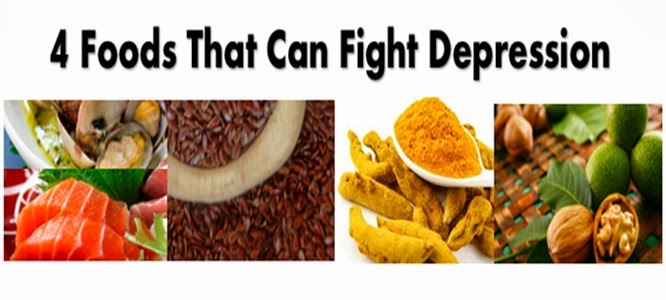
How is diet linked to depression?
Many people with depression seek natural treatments for their symptoms, in one form or another.
While there is no specific diet to treat depression, what a person consumes may play a role in managing its symptoms.
Eating more healthful diet improves the mood and signs of depression.
The treatment diet encouraged eating whole foods while discouraging things such as refined foods, sweets, and fried food.
Foods to consume while depressed.
B vitamins
Some B vitamins are also key in mood disorders such as depression. Vitamin B12 and folate, or vitamin B9, have both been linked to a reduced risk of mood disorders.
Sources of B vitamins include:
- eggs
- meat
- poultry
- fish
- oysters
- milk
- whole grains

Protein-rich foods
High-quality proteins are the building blocks of life. Getting adequate protein is essential for everyone, but some forms of protein, in particular, may be more helpful for people with depression.
Zinc
Zinc helps the body perceive taste, boosts the immune system, and may also influence depression. Zinc levels may be lower in people with clinical depression, and zinc supplementation may also improve the effectiveness of antidepressants.
Zinc is found in supplements. Foods, including whole grains, oysters, beans, and nuts, are also good sources of zinc.

Foods to avoid while depressed
Just as certain foods and nutrients may be of benefit to people with depression, there are also some that should be avoided.
Caffeine
For people with depression that is linked to anxiety, it may be important to avoid caffeine. Caffeine can make it difficult to sleep and may trigger symptoms of anxiety in many people.
Caffeine also affects the system for hours after it is consumed. It is best for people with depression to avoid caffeine if possible, or reduce consumption and stop consuming it after noon.
Alcohol
Though occasional alcohol drinking is seen as an acceptable distraction, it may make depression symptoms worse.

Excessive alcohol consumption may increase the risk of panic attacks or depressed episodes. Alcohol also alters a person’s mood and may turn into a habit, which could influence depression symptoms.
Refined foods
High-calorie foods with few nutrients in them may also influence depression symptoms. Foods high in sugar and refined carbs can promote a crash, as the energy from them is depleted. This can make a person feel mood swings or energy swings.
Nutrient-dense whole foods are a much better approach to balancing mood and energy levels.
Processed oils
Highly processed or refined oils, such as safflower and corn oil, are very high in omega-6 fatty acids. Having too many omega-6s in the diet can cause an imbalance in the body that may promote inflammation in the brain and influence depression symptoms.